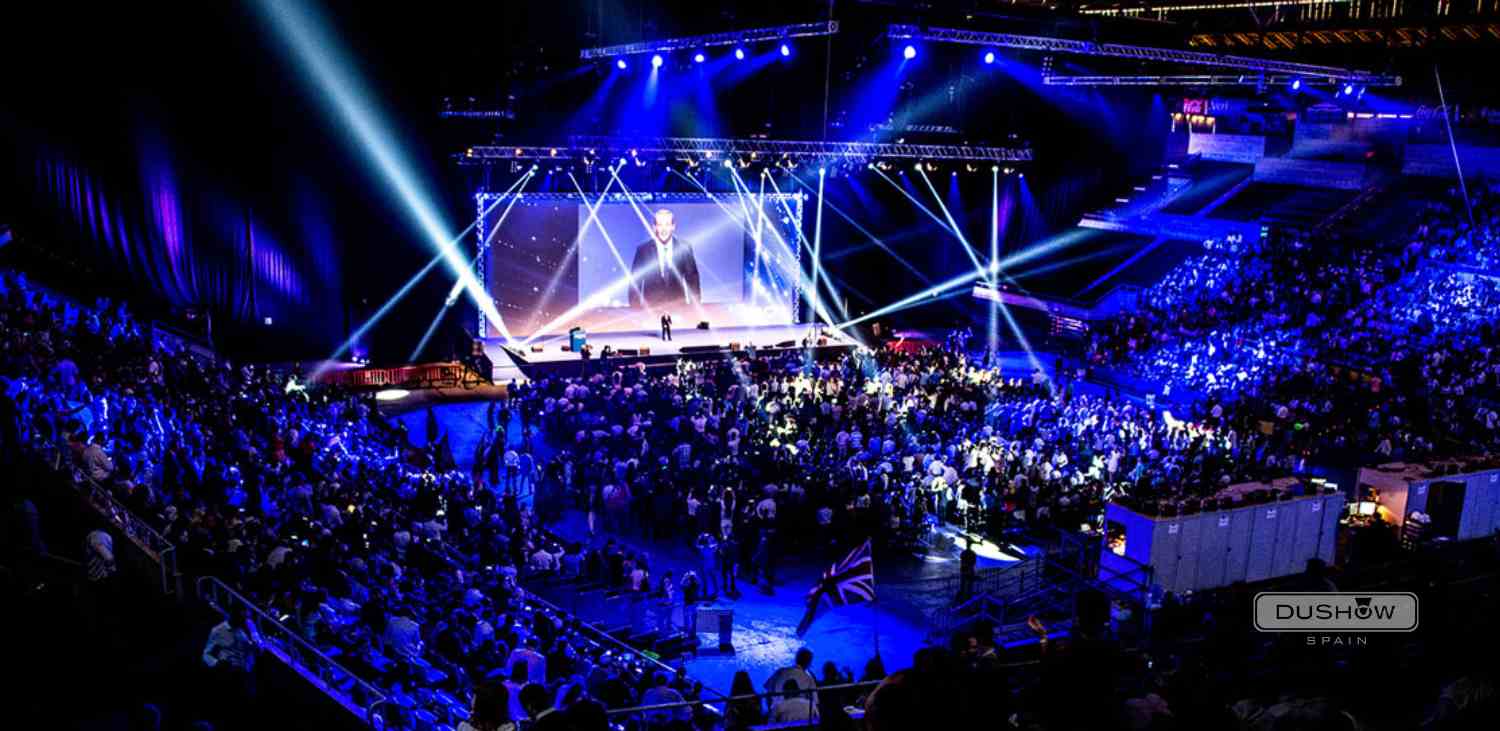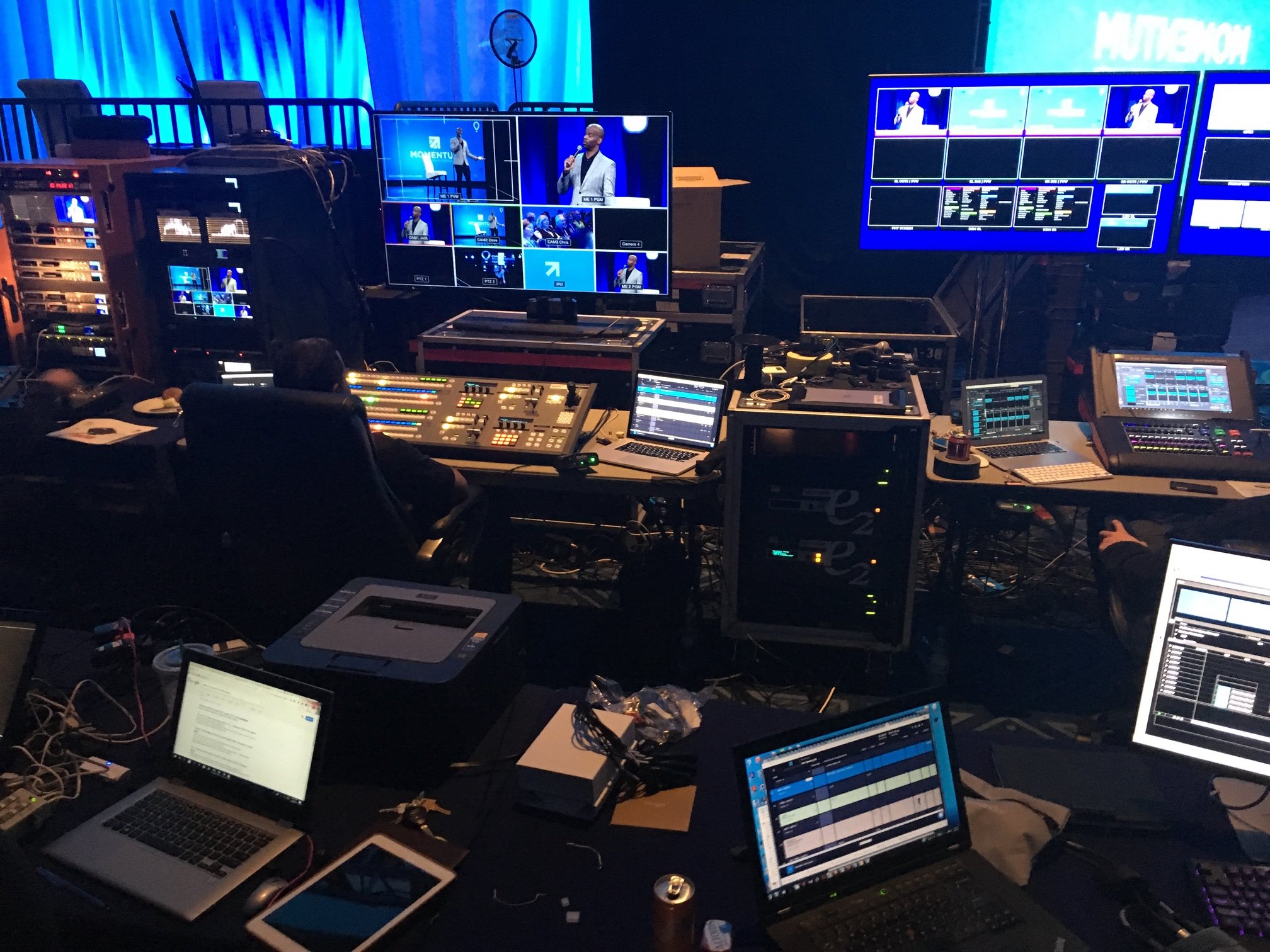How Event Production Works: A Comprehensive Consider the Refine
Event production is a complex and structured process that requires cautious preparation and implementation. It begins with developing clear purposes and comprehending the target market. Each step, from budgeting to location selection, plays an essential duty in making sure success. As the process unravels, numerous aspects must align perfectly. The subtleties of this complex operation frequently go unnoticed. What are the key phases that contribute to an unforgettable event?

The Initial Drawing Board
When starting on event production, mindful preparation is necessary to guarantee an effective result. The initial drawing board serves as the foundation for all succeeding initiatives. Throughout this phase, event manufacturers should define the event's purpose and objectives clearly. Identifying the target audience assists customize the experience and messaging, assuring importance and engagement.Producers need to also take into consideration the event layout, whether it be in-person, online, or crossbreed, as this will certainly influence different logistical aspects. Choosing a suitable day and location is essential, as it impacts accessibility and availability.Furthermore, putting together a reliable group is basic for dividing responsibilities and improving communication. Developing a timeline with landmarks warranties all jobs are finished on time. This stage entails extensive study, consisting of determining possible obstacles and devising strategies to reduce threats. Inevitably, a well-structured preliminary preparation phase sets the tone for a successful event production journey.

Budgeting and Source Appropriation
In event production, reliable budgeting and source allotment are essential for success - event production charlotte. Developing economic parameters sets the structure for all subsequent decisions, while source distribution approaches assure that every element of the event is properly supported. Together, these aspects assist preserve control over expenses and optimize the use of available resources
Developing Financial Parameters
Establishing financial specifications is vital to the success of any type of event production, as it sets the foundation for efficient budgeting and source appropriation. This procedure begins with specifying the total budget, which includes all elements of the event, consisting of place prices, event catering, and advertising and marketing. By determining available funds, event organizers can focus on expenditures and allot sources appropriately. Furthermore, it is vital to perform thorough marketing research to prepare for possible expenses and determine financing resources, such as sponsorships or ticket sales. Establishing clear economic specifications also aids in risk management, allowing organizers to establish apart contingency funds for unanticipated expenditures. Inevitably, a distinct spending plan works as a roadmap, directing the event production team towards achieving their objectives while keeping economic control.
Source Circulation Strategies
Effective resource distribution strategies are vital for maximizing the influence of an event while adhering to spending plan restraints. Effective event production needs a thorough strategy to budgeting and source allotment. Planners should prioritize necessary aspects such as place, event catering, and innovation, ensuring that funds are allocated to locations that enhance guest experience. A comprehensive budget must describe expected expenditures and recognize areas for possible price savings, such as discussing with vendors or exploring sponsorship chances. Additionally, tracking expenditures throughout the planning procedure aids prevent overspending. By utilizing critical source circulation, event producers can supply a memorable experience while preserving monetary responsibility, ultimately adding to the general success of the event.
Venue Choice and Logistics
Selecting the ideal venue is crucial to the success of any event, as it establishes the phase for the overall experience. Location selection involves examining various elements, consisting of capability, accessibility, and area. Planners should think about the target audience and the nature of the event, making certain the place aligns with the event's goals.Logistics play a substantial duty in this process, entailing plans for seating, audiovisual devices, and catering solutions. An appropriate location should facilitate smooth circulation for participants and staff, enhancing engagement.Additionally, reviewing possible venues for facilities like car park, bathrooms, and emergency exits is essential for safety and ease. The timeline for safeguarding the location is likewise important, as preferred places might reserve promptly - event production charlotte. Subsequently, detailed preparation and prompt implementation can eventually add to a smooth event experience, making place choice and logistics fundamental parts of effective event production
Imaginative Concept Advancement
While the place sets the physical phase, creative idea development forms the event's identification and narrative. This process begins with identifying the event's function and target audience, enabling event manufacturers to formulate an engaging motif that resonates with guests. Conceptualizing sessions typically consist of diverse point of views, promoting innovative ideas that line up with the event's goals.Once a motif is established, aesthetic elements such as color schemes, signs, and style are made to enhance the general environment. Narration techniques might also be integrated to develop an engaging trip for participants, assuring a memorable experience. In addition, considerations pertaining to amusement, tasks, and interactive elements are aligned with the picked idea, find out here enhancing the theme throughout the event.Ultimately, reliable imaginative idea advancement guarantees that every element of the event functions cohesively, leaving a long-term impression on attendees and meeting the event's purposes. This foundational work prepares for succeeding preparation and implementation stages.
Working together With Vendors and Vendors
Effective event production rests on reliable collaboration with suppliers and distributors. Picking trusted partners, discussing contracts properly, and ensuring prompt distributions are crucial action in this procedure. Each of these elements adds considerably to the general success and smooth implementation of an event.
Selecting Reliable Allies
How can event organizers assure a smooth production experience? Picking trustworthy companions is crucial in accomplishing this objective. Event planners should conduct extensive research study to identify suppliers and suppliers with a proven performance history of excellence. This includes examining recommendations, assessing profiles, and reviewing client comments. Organizers need to focus on companions who demonstrate expertise, timely communication, and a readiness to collaborate. Building solid connections cultivates depend on and enables quick problem-solving during the event. Additionally, it is beneficial to pick neighborhood suppliers who recognize the place and local logistics. Ultimately, an effective event depends upon the harmony in between planners and their companions, making sure that every aspect of production runs smoothly and successfully.
Bargaining Agreements Properly
Efficient negotiation of agreements is a vital action in the cooperation between event organizers and their suppliers and distributors. This process includes clear interaction of assumptions, deliverables, and timelines. other Planners should conduct comprehensive study on market rates and industry criteria to develop a standard for arrangements. It is important to develop a joint environment, urging open discussion about terms, rates, and possible contingencies. Organizers need to additionally prioritize comprehending the vendor's capabilities and limitations to straighten their requirements efficiently. Versatility can result in equally valuable agreements, promoting long-lasting partnerships. Crafting well-defined agreements that consist of details efficiency metrics can help assure accountability, ultimately leading to successful event implementation and satisfaction for all celebrations entailed.
Guaranteeing Timely Shipments
Prompt shipments are essential for the smooth implementation of any kind of event, needing attentive partnership in between planners and their suppliers and distributors. Reliable communication is essential, as it assists develop clear expectations regarding shipment timetables, quantities, and certain demands. Organizers frequently produce in-depth timelines to detail important landmarks, guaranteeing all parties remain straightened throughout the procedure. Normal check-ins with vendors can aid recognize possible hold-ups early, enabling proactive solutions. Additionally, building solid partnerships with trusted providers cultivates trust and accountability, which can lead to much better solution and prioritization. By focusing on these joint initiatives, organizers can decrease disturbances, thereby enhancing the overall efficiency of event production and guaranteeing that all required materials and services arrive as planned.
Marketing and Promo Approaches
While arranging an event, the success of marketing and promo methods can significantly influence presence and interaction. Effective approaches often consist of a combination of electronic advertising, traditional advertising and marketing, and grassroots outreach. Using social media systems allows for real-time communication and targeted marketing, getting to particular demographics effectively. Email advertising campaigns can better engage possible attendees with tailored material and reminders.Collaborations with influencers or sector leaders can likewise boost reputation and widen reach. Developing engaging web content, such as videos or blogs, aids to generate buzz and endure interest leading up to the event. Furthermore, leveraging early-bird discounts and special perks can incentivize ticket purchases.Promoting via conventional channels, such as posters or regional media, continues to be pertinent, particularly in community-focused occasions. A complete approach that integrates several approaches warranties maximum visibility and interaction, eventually adding to the event's success and the production of a memorable experience for attendees.
On-Site Execution and Administration
On-site implementation and monitoring are essential components that identify the general success of an event. Efficient sychronisation during the event ensures that all aspects line up with the prepared program. Event managers supervise logistics, including vendor coordination, equipment setup, and guest services. Keeping an eye on timelines and attending to any type of unforeseen problems are fundamental for maintaining a smooth experience.The team plays a substantial function, as skilled workers are accountable for various tasks such as enrollment, info dissemination, and technical assistance. Interaction among group participants article is essential; it cultivates a joint atmosphere and enables fast resolution of challenges.Additionally, safety and security procedures must be complied with, securing the well-being of all guests. Post-event assessments are likewise part of on-site monitoring, supplying insights for future renovations. By focusing on these facets, event manufacturers can create unforgettable experiences that meet or go beyond attendee assumptions while attaining the event's goals.
Regularly Asked Concerns
Just how Do I Select the Right Event Motif?
Selecting the right event style entails thinking about the target market, event purpose, and place. Researching present fads and gathering input from stakeholders can likewise inspire innovative concepts that reverberate and create an unforgettable experience.

What Prevail Blunders in Event Production?
Typical mistakes in event production often consist of inadequate preparation, bad communication amongst team participants, budget plan mismanagement, neglecting to think about the audience's demands, and stopping working to perform a complete post-event assessment for future renovations.
Exactly How Can I Gauge Event Success?
To determine event success, one can assess guest satisfaction, interaction degrees, budget plan adherence, and post-event responses. Key efficiency indicators, such as ticket sales and social networks communications, likewise give valuable understandings right into total effectiveness.
What Should I Do if It Drizzles on the Event Day?
In the event of rain on the day, the coordinator ought to implement contingency strategies, such as securing camping tents or relocating tasks indoors. Communication with guests concerning changes is vital to guarantee a smooth experience despite weather condition difficulties.
Just How Can I Ensure Guest Interaction Throughout the Event?
